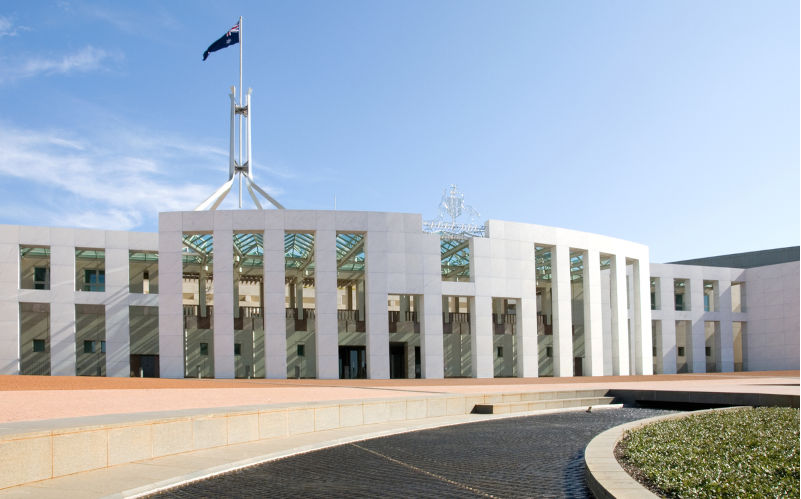As the inevitable federal election approaches, the major parties are already revealing their strategies. The Australian Labor Party is opting for a cautious approach, banking on the expectation of securing a second term. Treasurer Jim Chalmers focuses on delivering intricate explanations of Australia’s economic performance within a global context, while Prime Minister Anthony Albanese highlights his government’s efforts to improve wages and overall economic conditions. Their campaign seeks to present a narrative of stability and progress despite global challenges.
In contrast, the Coalition, under Peter Dutton, appears to be drawing inspiration from the political playbook of US President Donald Trump. As Senator Michaelia Cash has enthusiastically stated, Dutton’s leadership promises a similar combative and populist approach to governance.
Given the current political landscape, the Coalition stands a strong chance of winning under a two-party system, and if international trends — particularly in the United States — are any indication, they may even achieve an outright majority.
Ultimately, our voting decisions are driven by our beliefs – deeply ingrained perceptions that shape how we relate to the world around us. These beliefs function as internal maps, formed from birth, helping us navigate our environment. They are constructed from memories – connections between our actions, the external world, and the resulting impact on our lives.
Over time, this network of experiences solidifies. The more a belief proves reliable, the more it becomes an unquestioned truth – a fundamental lens through which we interpret the world. These internalised truths enable us to respond efficiently to new information, as they have been reinforced by past success. Eventually, beliefs become ingrained in our memory, allowing us to “know” things without direct evidence. For instance, as I sit here writing, I am certain my car is in the driveway and my children are at work, despite not seeing them. This kind of belief streamlines daily life, as, in most cases, our assumptions align with reality.
Our perception of life is always shaped by the interaction between our sense of self and how we interpret our surroundings. At the core of this experience is our need for social belonging – our drive to fit into the world around us. While many assume that survival is the strongest human instinct, the reality is different. If survival were our primary motivation, suicide would not exist. Yet in Australia, more than 3000 people take their own lives each year – an average of nine per day. The vast majority of these tragedies can be traced back to feelings of rejection and social exclusion.
Belonging is not a product of rational thought but of deep-seated emotions, and emotions consistently hold more power in decision-making than logic. This is the foundation of modern political strategy. Donald Trump’s approach was not about policy details, but about cultivating a sense of grievance – stirring up anger toward “Sleepy Joe”, blaming outsiders for job losses, and convincing voters that America was in decline.
Dutton follows a strikingly similar playbook. His rhetoric paints Albanese as a “weak leader”, insists the economy has deteriorated, and claims Australians are worse off. His message is clear: only a “strong” leader can put the country back on track. This is Trumpism – just with an Australian accent.
As previously discussed, our beliefs — and consequently, our votes — are driven primarily by emotion. Simply presenting evidence is never enough to change deeply held beliefs; trust in the messenger is just as critical. This presents a major challenge for the Australian Labor Party.
Dutton, however, is unburdened by the need for trust or truth. Neither he nor the media that supports him is constrained by facts. His strategic use of misinformation, as seen during the Voice referendum campaign, demonstrates his ability to manipulate public perception by sowing doubt and confusion. Like Trump, he operates without self-reflection, exuding unwavering confidence in his own abilities – perhaps the clearest example of emotions “trumping” reality. When he appears in the media, his projection of certainty becomes a political weapon.
The Coalition’s campaign is designed with a singular objective: to make voters feel uneasy. Its central narrative is that Australians are “worse off” under Labor. But this sweeping claim demands scrutiny. While those in lower-income brackets certainly experience financial strain due to the rising cost of living, the same cannot be said for the wealthiest Australians. In fact, economic forecasts projected total business profits to rise by 2.4% in 2023–24, reaching $580.4 billion.
Economic pressures are largely dictated by global conditions – a reality rarely acknowledged by the Liberal Party, as it does not align with their political narrative. Instead, their focus remains on amplifying discomfort, reinforcing a sense of decline, and positioning themselves as the solution to a crisis they have helped manufacture.
Albanese’s approach to the upcoming election bears a striking resemblance to the missteps of the US Democrats in the 2024 election. The Democrats assumed an easy victory, confident that voters would reject a convicted felon, a man accused of sexual assault, and a candidate who repeatedly displayed incompetence. Their nominee was well-informed, socially accepted, and intellectually superior – yet she suffered a historic defeat. She placed her trust in the electorate’s sense of reason and decency. Albanese appears to be following a similar path, but his opponent, while politically ruthless, is nowhere near as polarising as Trump.
Albanese’s cautious strategy is unlikely to succeed. His reluctance to take strong positions on major issues only strengthens Dutton’s hand. The recent surge in antisemitic attacks has exposed this vulnerability. While it is essential to condemn all acts of hatred against any community, Dutton has manipulated the situation, forcing Albanese into a defensive stance – one that even contradicts his own party’s platform. This pattern of appeasement projects weakness, a quality that history has repeatedly shown to be politically fatal. Neville Chamberlain’s infamous “peace in our time” declaration is a glaring reminder of the dangers of seeking easy solutions rather than showing decisive leadership.
One can hardly imagine past Labor leaders — Gough Whitlam, Bob Hawke, or Paul Keating — capitulating in the same way. They would likely have contextualised the vandalism of a wall alongside the broader humanitarian crisis in Gaza, rather than allowing political pressure to dictate their response. Likewise, the well-documented ineffectiveness of mandatory sentencing should have led to a firm rejection of Dutton’s law-and-order posturing, yet once again, the ALP has buckled.
As the election draws closer, it is clear that emotions, not policies, will dictate its outcome. The Coalition’s strategy is not based on offering solutions, but on fostering fear and uncertainty. Their campaign thrives on the narrative that Australians are worse off, despite economic indicators suggesting otherwise. By exploiting feelings of insecurity, Dutton positions himself as the strongman who can restore order – an approach reminiscent of Trump’s political playbook.
Meanwhile, Albanese’s cautious leadership risks being perceived as weakness. His reluctance to take bold stances allows Dutton to dictate the political discourse, forcing Labor into reactionary positions rather than setting the agenda. History has shown that leaders who fail to assert their vision often lose control of the narrative, and Albanese’s approach so far suggests he may be falling into this trap.
Ultimately, this election will not be decided by facts alone, but by the electorate’s perception of strength and certainty. If Albanese continues to rely on reason over emotional appeal, he may find himself out-manoeuvred by a Coalition unburdened by truth or integrity. The challenge for Labor is not just to present good policies, but to convince Australians that they offer a stronger, more confident alternative to Dutton’s fear-driven politics. Otherwise, history may repeat, and the country could once again fall for the illusion of strength over substance.
John Frew worked in public education, including as foundation principal at a secondary school for students with Conduct Disorder and Oppositional Disturbance. John has authored numerous books the latest being ‘Neuroscience and Teaching Very Difficult Kids’. His previous books ‘The Impact of Modern Neuroscience on Contemporary Teaching’ and ‘Insights into the Modern Classroom’ have focused on behaviour management in schools. Since retiring, he has founded the Frew Consultants Group which provides a range of supportive resources for teachers who manage children with severe behaviour problems.

